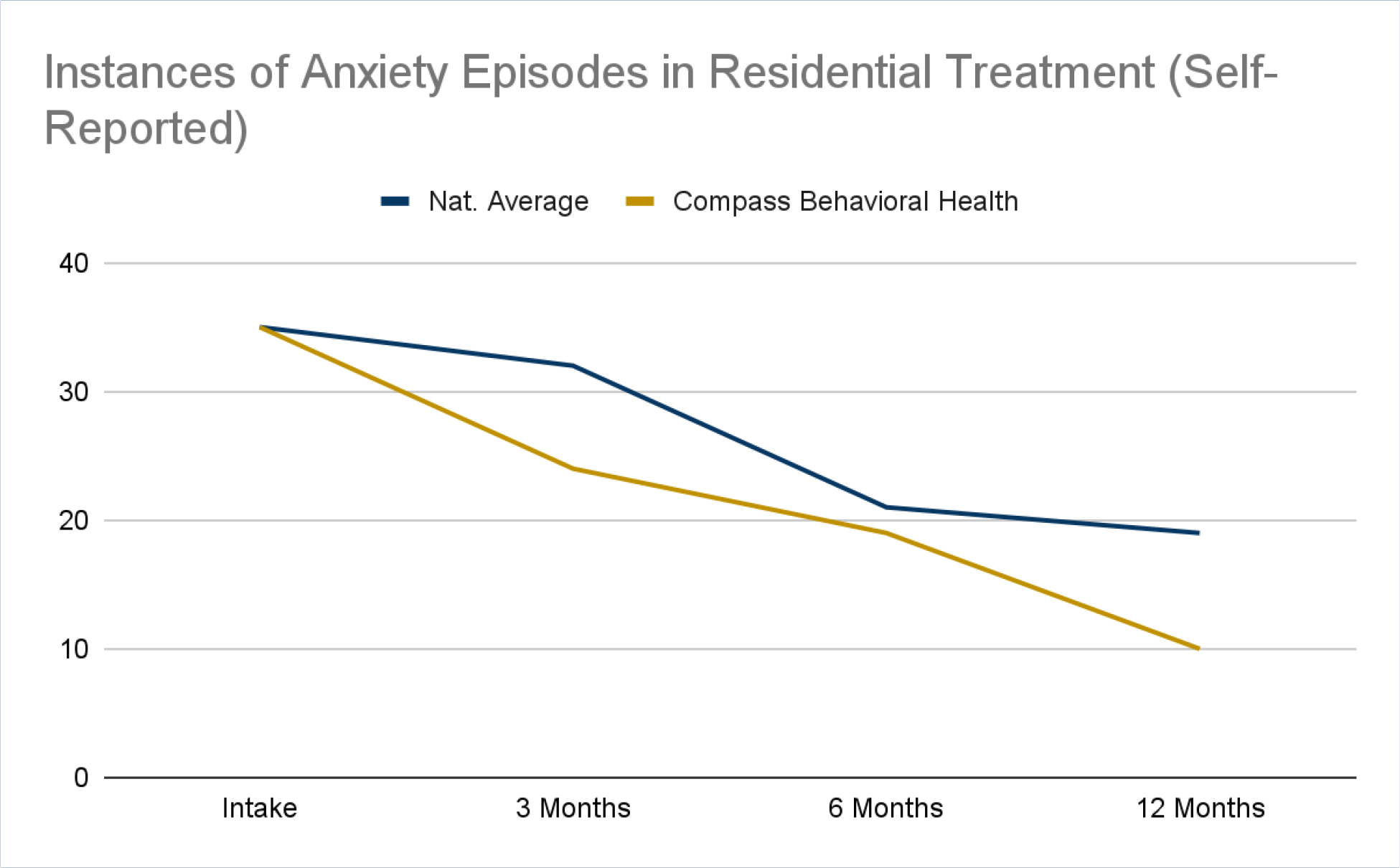Adolescent Residential Treatment
for Anxiety in Los Angeles, CA
Anxiety in adolescence can be painful and debilitating. If your teen hasn’t found relief with outpatient treatment, it may be time to consider an adolescent residential treatment program for anxiety that provides them the opportunity to practice DBT skills without external distractions or pressure.
Compass Behavioral Health’s residential treatment program for anxiety helps teens build essential skills to manage their anxious thoughts and better their lives in a supportive setting outside of Los Angeles, CA. As California’s first DBT-Linehan Board of Certification treatment center, Compass Behavioral Health uses DBT and other evidence-based therapies to create personalized treatment plans that ensure patients leave with the skills they need for a healthy, happy life. Our program usually lasts 6-12 months and is led by our DBT-certified, expert clinicians.
Our Treatment Philosophy
Every patient is different – what works for one won’t work for another. That is why we believe in a comprehensive and varied approach to residential treatment for anxiety. We work with each individual to create a tailored treatment plan that will work for them. Some of our treatment methods are listed below.
Robust Individual
Therapy
3 hrs individual therapy
1 hr psychiatric evaluation
1 hr nutritional counseling
Robust Family
Treatment
Evidence-Based
Groups
Whole-Child
Wellness

Acceptance and Commitment Therapy Group

#Adulting (Chores) Group

Art Therapy

Cognitive Behavior Therapy Group

Community Group

Dialectical Behavior Therapy Skills Group

Executive Functioning Coaching

Family Therapy

Attachment-Focused Multi-Family Group

Horticulture Therapy

Interpersonal Effectiveness Group

Individual Skills Coaching

Individual Therapy

Love Mapping

Mindful Cooking & Culinary Lab

Multi-Family Dialectical Behavior Therapy Skills Group

Mindfulness & Mindful Self-Compassion

Parent Effectiveness Training

Physical Fitness & Yoga

Sleep Hygiene Group

Acceptance and Commitment Therapy Group

#Adulting (Chores) Group

Art Therapy

Cognitive Behavior Therapy Group

Community Group

Dialectical Behavior Therapy Skills Group

Executive Functioning Coaching

Family Therapy

Attachment-Focused Multi-Family Group

Horticulture Therapy

Interpersonal Effectiveness Group

Individual Skills Coaching

Individual Therapy

Love Mapping

Mindful Cooking & Culinary Lab

Multi-Family Dialectical Behavior Therapy Skills Group

Mindfulness & Mindful Self-Compassion

Parent Effectiveness Training

Physical Fitness & Yoga

Sleep Hygiene Group
Our Treatment Record
As California’s first DBT-Linehan Board of Certification treatment center, Compass Behavioral Health applies DBT and other evidence-based therapies to ensure personalized treatment plans that garner results that routinely outperform the national average.

Navigating Insurance
Getting adolescent residential treatment for anxiety covered with your insurance can be a difficult process. Our staff is here to help.
We start by verifying your insurance coverage. If you are not covered, we can help walk you through the process of single-case agreements with your provider to ensure the smallest out-of-pocket payment possible.
The Admissions Process
FREE CONSULTATION
INSURANCE AUTHORIZATION
3
ADMISSIONS
Testimonials
fantastic to work with.”
the facility.”
The Journey to Healing Starts With Compass
Our DBT-trained clinicians are among the best in the world at providing adolescent residential treatment for anxiety. Reach out to our team and see how we can help your teen manage their anxiety.

